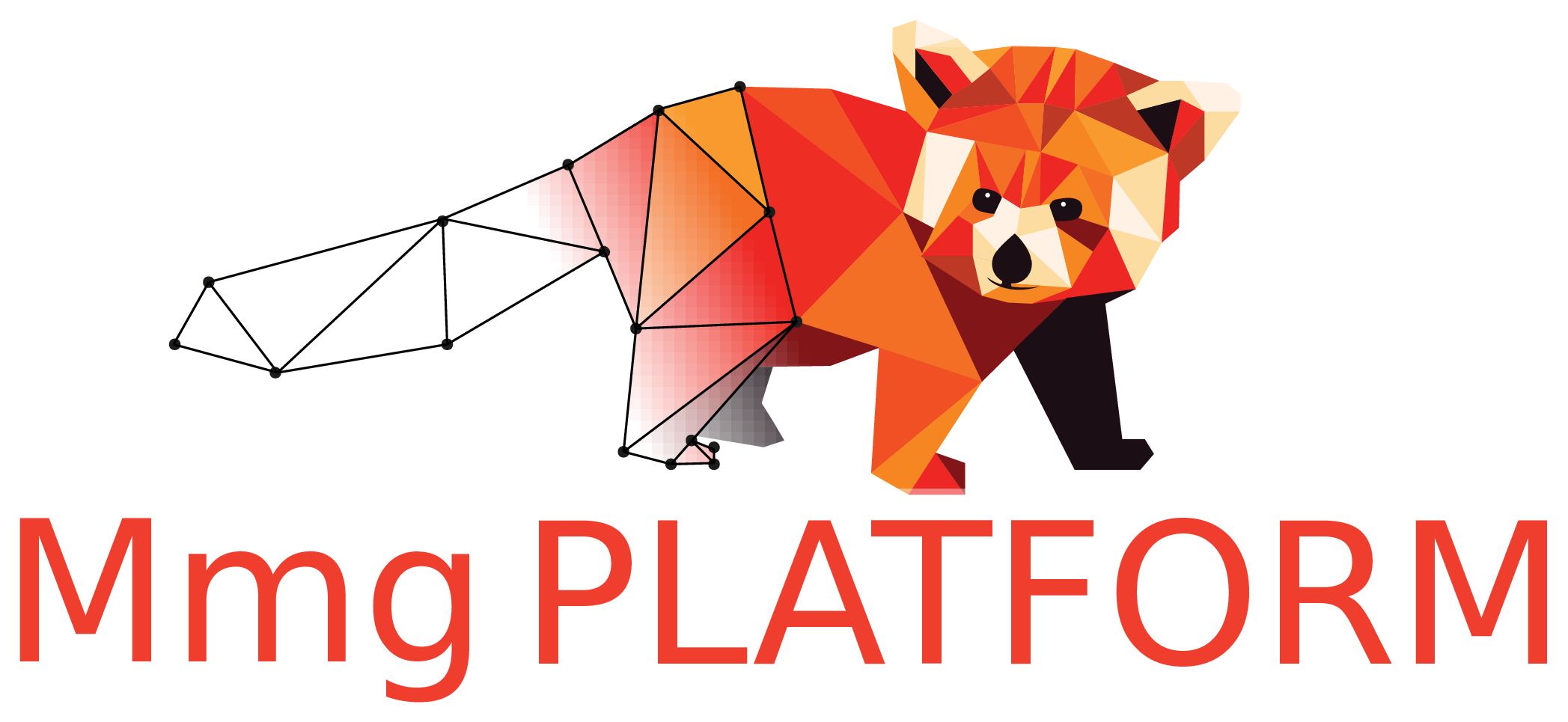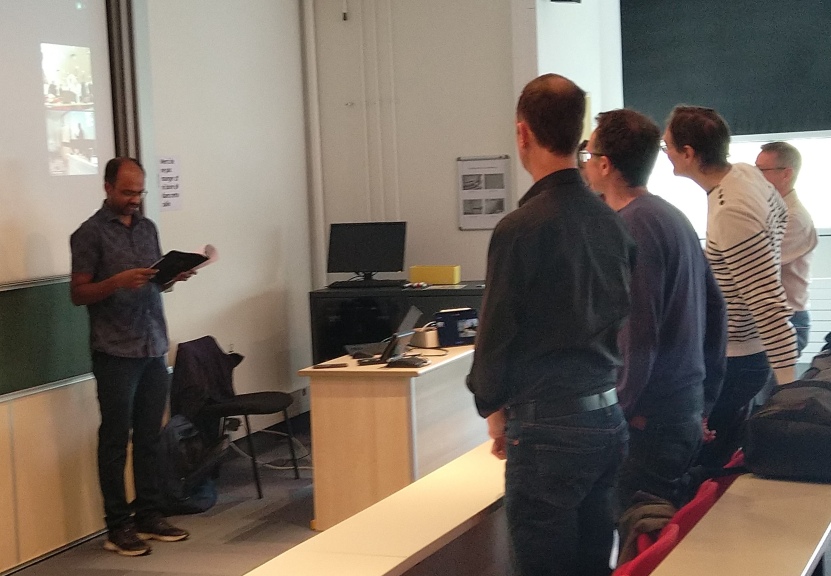Results
Software
MICROCARD aims to build software that can simulate the heart cell by cell, as well as software that can generate the geometrical models that are needed for such simulations. Thus, we build and contribute to several pieces of software with more or less specialized tasks.
µCARP

µCARP is our main simulation software. It is implemented as a branch of the openCARP software. We not only branched openCARP, but we also contributed to the original by adding a Ginkgo back-end to allow openCARP to run efficiently on GPU, MLIR-based acceleration of the membrane models, automated packaging of simulations, and a Jupyther front-end. We are also busy adding automatic restart capability, allowing openCARP to overcome node failures on supercomputers.
mmg3d and ParMmg

mmg3d is a remesher, a program that can modify three-dimensional meshes consisting of tetrahedra, part of the Mmgtools collection. The mmg3d software can improve the quality of a mesh and adapt it to the user's needs e.g. in terms of element sizes. Importantly, mmg3d can discretize level sets, while preserving any number of volumetric subdomains in the mesh. This functionality is crucial for our methods to build detailed meshes of cardiac tissue. We have done a lot of work to make mmg3d more robust in difficult situations, which are plentiful in our meshes.
ParMmg is a version of mmg3d that can work with multiple processes simultaneously. This capability is necessary to handle large meshes in a reasonable amount of time, and to handle meshes that are too large to fit in the memory available to a single processor. We have made ParMmg more robust, and we are adding functionality for level-set discretization, which ParMmg did not have yet.
In addition to our work on the code we provide a new User Guide for ParMmg.
Ginkgo

Ginkgo is a high-performance numerical linear algebra library for many-core systems, with a focus on solution of sparse linear systems. Notably, it allows linear algebra problems to be solved efficiently on NVIDIA, AMD and Intel GPUs. Since GPUs nowadays provide most of the compute power in supercomputers, it is essential for our work that our linear-algebra problems can be handled by them. Therefore we implemented the specific algorithms that we need (e.g. a BiCGStab solver and BDDC preconditioners) within Gingko. These algorithms are also applicable for other problems, so this work is also benefiting a wider Gingkgo user audience.
Scientific papers, presentations, posters
An overview of our scientific output is given on our publications page.
Doctorates

Several people have earned PhD degrees thanks to support by the MICROCARD project, or are on their way to do so.
- Ngoc Mai Monica Huynh defended her thesis Newton-Krylov Dual-Primal Methods for Implicit Time Discretizations in Cardiac Electrophysiology in December 2021 at the Università degli studi di Pavia
- Arun Thangamani defended his thesis Optimized Code Generation of Parallel and Polyhedral Loop Nests using MLIR in September 2024 at Université de Strasbourg.
- Edoardo Centofanti defended his thesis Efficient Solvers and Machine Learning Approaches in Cardiac Electrophysiology on High-Performance Computing Architectures in December 2024 at the Università degli studi di Pavia.
- Zeina Chehade defended her thesis Finite volume methods on unstructured meshes for the microscopic bidomain model in cardiac electrophysiology in June 2025 at Université de Bordeaux.
- Vincent Alba defended his thesis Resource dimensioning for heterogeneous architectures in December 2025 at Université de Bordeaux.
Data
MICROCARD supported the creation of a bundle feature in openCARP to easily make in-silico experiment setups available on public repositories. An overview of experiments can be found on this page. The data sets are referred by DOI. Initially they were hosted on the Radar4KIT repository; starting in 2026 new data sets will be placed in the openCARP Community on Zenodo.
A synthetic mesh of 600x500x400µm cardiac tissue was published here on Zenodo.
Outreach activities
Scientific research and development concerns everybody, not only those who like to read scientific papers or use scientific software. In order to reach a wider audience, we undertake several activies.
- We regularly post on LinkedIn, about our work and the people behind it.
- We author wide-audience papers in our national languages like this one (French) in The Conversation.
- We participate in local activities such as the European Researchers' Night.
Others also write about us in accessible language. See for example
- How supercomputers can help defuse ‘cardiac time bombs’ published by the CORDIS platform of the European Union and
- Plongée au cœur de la simulation cardiaque : quand le HPC éclaire les mystères des arythmies published by Inria on the occasion of International Heart Day 2025.